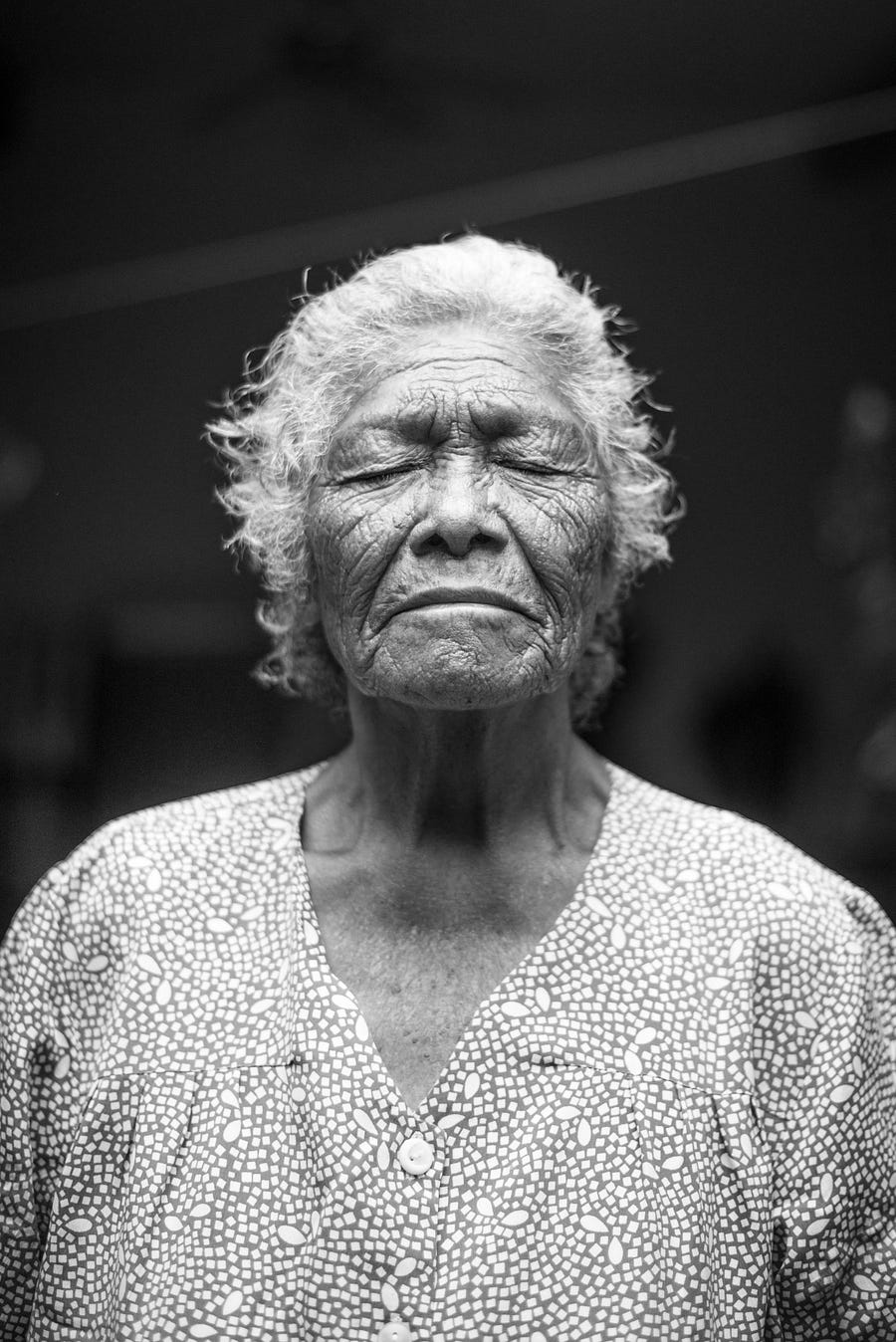
“Old grandmother with gray hair and a wrinkled face closing her eyes in black and white.” by Cristian Newman on Unsplash
Some of us fight aging. Some of us embrace it. Whichever approach is yours, though, aging beats the alternative. In the immortal words of someone.
People in my family die young. Maybe that’s why I’ve always wanted to be old. Or maybe it’s because I’d hoped to be old and wise, to stop making the same foolish mistakes over and over again.
That hasn’t happened yet, but aging has made me lazier, meaning that I now have no energy at all to boss other people around about how to spend their days. It’s all I can do to manage my own days.
One of my favorite poems that examines aging is “The Love Song of J. Alfred Prufrock” by T.S. Eliot, even though I harbor great resentment against Eliot for his efforts to turn poetry into an elitist art form.
W.B. Yeats’ poem “When You Are Old” is about aging, but it’s also a love poem, sort of. “Warning” by British poet Jenny Joseph starts with the famous, exuberant line, “When I am an old woman I shall wear purple.”
The poem below, originally published in Poet Lore, is not particularly exuberant.
When It Descends
Winter, tell me how my body
makes changes without me. You know.
Your beautyberry is gone again, eaten by cardinals.
The nights grow longer and call me to their altars:
bedsheets I stroke like a lover’s skin,
bedside table piled with books, breeding
beside a cup of ginger tea.
I pray for sleep, and when it descends,
my two husbands trade places in my dreams,
as if they’re only stand-ins
for limitation, when I know they were more.
Tell me how my body changes without me,
and I’ll tell you how I learned
to speak a loving thought out loud.
If only I’d stopped right there.
Michele, I hope you live forever.
LikeLiked by 1 person
Awwwww
LikeLike
Well, you hooked me on topic alone – in the throes of aging a bit too fast here, thanks. I find your poem exquisite – “how my body makes changes without me”, the snapshot of “ginger tea” and hoping for sleep, the “two husbands” trading places, and an ending that has left me pondering.
LikeLike
Do you mind if I reblog this?
LikeLike
Not at all! I’m honored
LikeLiked by 1 person
Thanks, Michele. I will reblog it later today or early tomorrow.
LikeLike
Reblogged this on One Woman's Quest and commented:
Came across this post today, and felt the hand of synchronicity at play. Michele’s words reminded me that my experience is not unique. She speaks to the human condition of aging eloquently.
LikeLike
“I grow old. I grow old. Shall I wear my trousers rolled…”
LikeLiked by 1 person
Reblogged this on Cavewoman.
LikeLike